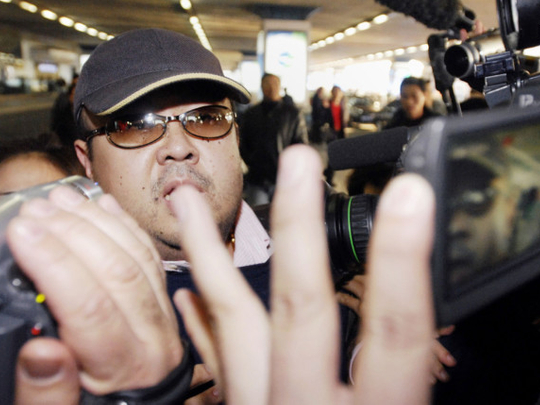
“Arrests so far in relation to the brazen assassination of Kim Jong-nam point to the Pyongyang regime for ordering the killing,” said the Yonhap News in South Korea. “The young leader is in the international spotlight for being ruthless enough to eliminate anyone — his uncle and now his brother — if they pose the slightest threat to his authority and wealth. Pyongyang has posed a threat for its nuclear arms,” the paper said.
“We chose to turn blind eyes to the testimonies about the inhumane conditions North Koreans were in, including the torture and labour camps. But seeing how blatant and merciless the ruler can be, we must no longer keep our mouths shut about human rights conditions in the North. If someone can order an assassination of a brother who does not pose an immediate threat to his power, we can imagine how ruthless he can be to others. There had been reports of a purge under the rules of Kim Il-sung and Kim Jong-il. But Kim Jong-un seems to be much more ruthless than his grandfather and father. The daylight murder in an international airport should raise awareness of the dire state of human rights conditions and be used to add international pressure on Pyongyang,” the paper said.
It predicted that by killing Kim Jong-nam, North Korea might have eliminated a potential threat, “but at the same time aggravated international distrust of the reclusive regime and pushed the country further away from the international community. Beijing again would have been startled by the erratic ways of the young leader.”
Weighing in on the issue, The Guardian was more circumspect. “The death last week of Kim Jong-nam is widely assumed to be no accident. But what actually happened in Kuala Lumpur, where Kim Jong-nam was allegedly attacked by female secret agents wielding poisoned needles, remains a mystery. So far, four suspects, only one of them North Korean, have been arrested. Autopsy results have proved inconclusive. A diplomatic row has broken out, meanwhile, between the Malaysian authorities, alarmed about a possible high-profile assassination on their territory, and North Korea, which accuses them of colluding with foreign powers to besmirch the country’s good name.”
Noting that the “hapless Kim” did not need to challenge his half-brother to be considered a danger, the paper said: “The killing of [Kim Jong-nam] must therefore be seen not as the latest bizarre quirk of a comical, Chaplinesque dictator but as another egregious example of the willingness of a very dangerous man to flout international law and human decency. Kim Jon-un is a menace to his people, to his neighbours and to the world at large. He must be stopped before he causes even more serious harm.”
The Hankyoreh meanwhile drew the world’s attention to the political dynamics of the North Korean situation. “Amid all these is the issue of North Korea’s nuclear weapons and missile programmes. While the top diplomats from the US and South Korea resolved in a bilateral meeting and a trilateral meeting with Japan’s Foreign Minister on February 16 to strengthen sanctions and pressure on North Korea, China and Russia called for a solution to be found through dialogue. There were even signs of a showdown during a meeting between the US and China, with US Secretary of State Rex Tillerson urging [Chinese foreign minister] Wang [Yi] to employ all available means to discourage North Korea from destabilising behaviour. The mood is such that other friction could be amplified if the North Korean nuclear issue is not brought under control.”
The Providence Journal in the US advocated stringent sanctions on the state and said: “North Korea’s long-term goal is to develop an intercontinental ballistic missile that could deliver nuclear weapons to America’s West Coast. With North Korea already in possession of at least a few nuclear weapons, and with its missile programme rapidly advancing, this is a very real worry. It is particularly disturbing to contemplate such a weapon in the hands of a regime with zero regard for human rights or its people’s welfare, a willingness to flaunt any and all international norms, and a predilection for bellicose rhetoric.”
Expressing alarm over the escalating tension, the paper said: “More sanctions on North Korea are needed. It was only recently that the United States imposed ones that were as tough as those that we have on Belarus and Zimbabwe... Whatever actions the US government can take to starve the regime of funds and advanced technology must be undertaken. North Korea, removed from the State Sponsors of Terrorism list by President George W. Bush in 2008, must be put back on the roll.”





_resources1_16a31069e4e_small.jpg)




